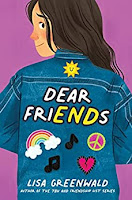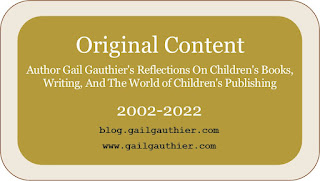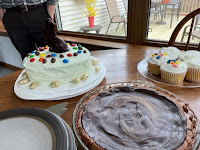Recently I read an article on the popularity of podcasts. It reminded me that I listened to them back, it appears, in 2016. I listened to podcasts while I was binge cooking on weekends. I eventually got tired of them.
- I wasn't interested in just sitting and listening to a podcast, and it was difficult to concentrate on them while doing something else. For instance, baking for three hours.
- I also found a lot of them back then more interesting in concept than in execution.
- Hosts often thought they could say anything and it would be entertaining. They were wrong.
Sunday, May 22, 2016 Another Cooking Binge, Another Podcast: "The Memory Palace"
Podcasts Losing Their Attraction For Me
Last week I was just about ready to throw in the towel with podcasts. I'd been interested in listening to them while working in the kitchen as a way to take in work-related material while doing an unnecessary creative act. I did pick up some good information, particularly on content marketing, but I was trying and discarding a lot of podcasts. Things I liked the first time I listened to them got old fast when I tried them again. When pods involved more than one personality, the ratio of chitchat to important content was often pretty high. I guess you can tell you're an introvert when you can't even take listening to others having a good time.
 |
| Big Cooking Binge |
All About The Story
The Memory Palace's creator, Nate DiMeo, describes his podcast as "a storytelling podcast and public radio segment about the past." He takes isolated historical events and creates a written narrative about them. If you go back to the early days of the podcast, the story is often just an account of something that happened. But eventually his pieces began to include something on the event's significance. For instance, in his story about nineteenth century singer Jenny Lind, he talks about a major difference between her time and ours. In her day, before sound could be recorded, before recording sound was even thought of, you could only hear music during a performance. In many cases, you would never have another opportunity to hear a singer. Did people even give that a thought? Or was it just a normal part of life?
The significance part of these stories is important. History isn't just a list of facts. It means something. And in terms of The Memory Palace being a storytelling podcast, meaning is huge. Many times without including an understanding of a real event, all a storyteller/writer is doing is passing on a list of things that happened. What does it all mean, Mr. Natural? brings a piece of writing to another level.
Another thing that's neat about these podcasts is they're short. So far, I don't think I've listened to one that's more than fifteen minutes. DiMeo is "interested in keeping things small because I was interested in the smallness of those things" (the historical "moments" he finds) "and the way they added up to a larger picture."
These short podcasts are like flash nonfiction. They are intense and complete. They give listeners an opportunity to see how someone finds meaning in an event in a quick, concise way. They have the potential, I think, to become a painless model for looking for and finding stories.
Hope I still like them in a few weeks.
I heard about Weekend Cooking through blogging buddy Alex Waugh of The Children's War. I most definitely cook on the weekend, and it is often somehow connected to writing or reading, as is most things in my life. So this weekend I am taking my first shot at joining the weekend cook/book people at Beth Fish Reads.









